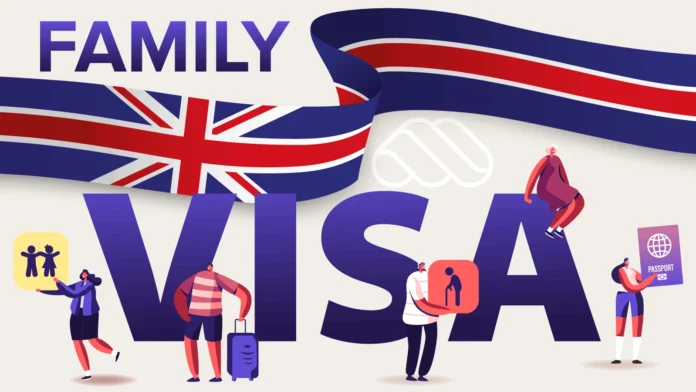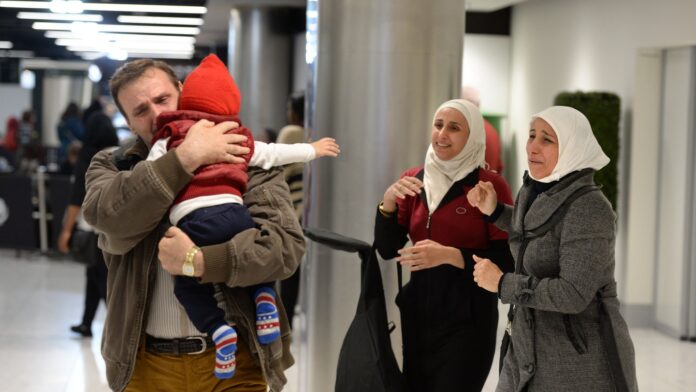
Family is the cornerstone of our lives, and for many, the desire to be with loved ones knows no borders. The United Kingdom recognizes the importance of family unity and offers a range of family visas that allow individuals to join their relatives who are settled in the UK.
In this comprehensive guide, we will explore the various UK family visas, eligibility criteria, application processes, and the importance of family reunification.
Introduction to UK Family Visas
Family reunification is a core principle of UK immigration policy. The UK government understands the significance of keeping families together and offers a range of family visas to facilitate this.
These visas enable individuals to join their family members who are already living in the UK. Whether it’s spouses, partners, parents, children, or dependent relatives, the UK family visa system caters to a variety of family relationships.
Spouse, Partner, and Fiancé(e) Visas

Eligibility Criteria: To obtain a Spouse, Partner, or Fiancé(e) visa, applicants must meet specific criteria, including proving their relationship, demonstrating financial stability, and providing suitable accommodation.
Application Process: The application process involves submitting supporting documents, attending interviews, and meeting English language requirements where applicable. Successful applicants can live and work in the UK for a specified period.
Parent and Child Visas
Bringing Parents to the UK: UK citizens and settled residents can apply to bring their parents to the UK under certain conditions, primarily if the parents require long-term care due to age, illness, or disability.
Bringing Children to the UK: Parents in the UK can apply to bring their children to join them. Eligibility criteria include the child’s age and the parent’s immigration status.
Dependent Relative Visas

Supporting Dependent Relatives: Individuals settled in the UK can apply to bring dependent relatives who require long-term care due to age, illness, or disability. This category is more limited in eligibility compared to other family visas.
Indefinite Leave to Remain (ILR) and Settlement
The Path to Settlement in the UK: After residing in the UK for a specified period on a family visa, individuals may be eligible to apply for Indefinite Leave to Remain (ILR), which grants them permanent residency status.
Meeting ILR Requirements: Meeting ILR requirements involves demonstrating continuous residence, compliance with visa conditions, and passing relevant English language and Life in the UK tests.
Appeals and Rejections
Common Reasons for Visa Rejections: Visa applications can be rejected for various reasons, including failure to meet eligibility criteria, inadequate documentation, or inconsistencies in the application.
The Appeals Process and Administrative Reviews: If a visa application is rejected, applicants have the option to appeal the decision or request an administrative review. Seeking legal advice is crucial in such cases.
Rights and Responsibilities of Family Visa Holders

The Rights of Family Visa Holders: Family visa holders have specific rights, including the right to live, work, and study in the UK. They may also access healthcare and other public services.
Financial Responsibilities and Access to Public Services: Family visa holders are typically required to be financially self-sufficient and not rely on public funds. Understanding these financial responsibilities is crucial.
Compliance with Visa Conditions: Staying compliant with visa conditions, such as reporting changes in circumstances and renewing visas when necessary, is essential to maintain legal status in the UK.
The Humanitarian Angle: Asylum and Refugee Family Reunion

The UK’s Commitment to Protecting Refugees: The UK government has a strong commitment to protecting refugees, and this extends to family reunion. Asylum seekers and refugees have specific provisions to reunite with their family members.
Reuniting Refugee Families in the UK: Navigating the family reunion process for refugees involves unique challenges and requirements, which are designed to safeguard the welfare of vulnerable individuals.
Recent Changes and Updates
Impact of Brexit on Family Visas: Brexit brought about changes in the UK’s immigration system, including family visas. Understanding these changes is vital for those planning to reunite with family members in the UK.
Changes in Immigration Rules and Policies: The UK government periodically updates immigration rules and policies, which can affect family visa applicants. Staying informed about these changes is crucial for a successful application.
Resources and Support

Accessing Official Government Resources: The UK government provides comprehensive information and guidance on family visas through official websites and resources.
Seeking Assistance from Immigration Advisors: Immigration advisors and legal experts can provide valuable support and guidance throughout the family visa application process.
Connecting with Support Organizations: Various support organizations and charities specialize in assisting individuals with family reunion cases, particularly for vulnerable groups such as refugees.
Conclusion: Strengthening Bonds, Building Lives
Family visas in the UK are more than just legal documents; they are the means to reunite loved ones, build lives together, and nurture the bonds that hold families close.
By navigating this comprehensive guide, you will gain a deep understanding of the processes, requirements, and opportunities associated with UK family visas.
Whether you are seeking to bring your spouse, partner, children, parents, or dependent relatives to the UK, this guide will empower you to embark on the journey of family reunification with confidence and clarity.








